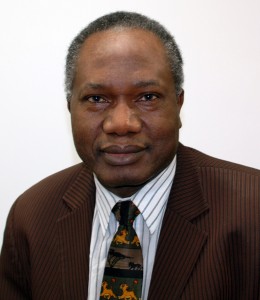The African Diaspora Association in Canada
BY IRENE MLAMBO
Editing by Lou Sifa

Africans living in Canada have set up an association, the African Diaspora Association in Canada, in an effort to meet the community’s needs nation-wide through various initiatives.
As the new year begins, most organizations are in a reflective mood. Emphasis is placed on past challenges and how these can be converted into successes in the future. At parties and cocktails, the atmosphere is celebratory as organizations brace for the future. This is no different for the African Diaspora Association of Canada (ADAC). Although a fledgling organization, ADAC‘s impact on the African community in Canada has proved the importance of organizing in the fight for equality and integration.
“Our people are vulnerable to the social determinants of health more than any other demographic,” Kalifa Goita, ADAC’s interim president, told The African. “Although most of the Africans who come to this country are highly educated,” he added, “we are at the bottom of the poverty datum.” Poverty, inadequate housing, unemployment, non-access to education and healthcare are among the challenges facing most black people in Canada.
The vision to create ADAC crystallized in the minds of its founders in 2005, but the non-profit organization did not actually come to life until 2008. It was launched amid fanfare with the support of the Canadian government and African diplomats posted in Canada, especially those from Zimbabwe and South Africa. Kalifa Goita, originally from Mali, took charge in 2010. ADAC is, in fact, an umbrella organization of various “diasporan” organizations committed to joining efforts to work for the well-being of their communities, and to facilitate the integration of newcomers. Now five years after its inception, ADAC is in the process of evaluating its impact on the community, and to instill new life into the organization via the hosting of a series of forums.
The organization is credited with some tangible achievements. Case in point: ADAC’s collaboration with local community health centers in ensuring that the clinics reach the African communities in their health promotion efforts. ADAC also works closely with Ottawa University in an advisory capacity whenever research is carried out in the African communities. Other selected positions include being on the advisory board of the Institute for African Studies at the Carleton University.
“ADAC continues to be instrumental in the universities by ensuring that the research work that involves our communities is relevant and useful for the advancement of the African communities in Canada,” Goita articulated. “We have collaborated with health centres to co-host seminars on health matters relevant to our communities. Because we are plugged in the communities, these institutions find the work of ADAC invaluable in assisting them to access the relevant African communities,” the organization’s president also said.
While ADAC has made a name for itself locally, the organization is looking for ways to ensure that the African diasporan communities in Canada play a pivotal role in the development of societies in the African and Caribbean countries.
Kalifa Goita pointed out that in drafting a constitution, ADAC’s leaders had to keep in mind the broader needs and objectives of the communities in Canada, and, at the same time, follow the objectives of the Millennium Development Goals of the African Union, A.U.
The Skills database is one of the main successes that ADAC has every reason to celebrate about. In keeping with the African Union’s Millennium Development Goals to rebuild Africa, ADAC has created a database that seeks to capture the professionals in Canada and anywhere in the world for the purposes of repatriation of skills. Canada, like many other developed countries, is a recipient of professional immigrants who leave a vacuum in the area of health, technology and finance back home.
In 2009, ADAC collaborated with a local research organization, the North-South Institute, and a local community health center to put together a conference that sought to find a solution to the health care professional drain plaguing countries in Southern African. Working with organizations like the North- South Institute and Cuso International, ADAC brought together stakeholders to find solutions to stem the brain drain while at the same time building the capacity of the local workforce to be able to handle the stresses of skill shortages in Africa.
The future seems brighter as ADAC gains momentum among Africans locally and nationally. Some of the successes are overshadowed, however, by the lack of funding, which compels the organization to depend on volunteers to execute its programs. ADAC’s mandate is national but because of logistical issues and teething problems, the organization collaborates with other local organizations to set similar goals and objectives for Africans in other provinces. Some of the successes that have come because of this type of collaboration include the establishment of theInternational African Diaspora Fund created in partnership with the Fonds International de la Diaspora Africaine based in Montreal, Quebec.
Currently, the African community has no building to host their own events and has to rent from more established communities. The organization is therefore advocating for a center where Africans can have all their programs under one roof. It is with this in mind that the Africa House Project was born. Goita said the Africa House Project is an endeavor that is near and dear to his heart. “We need a place where Africans can meet to promote our identity and appeal to our unique needs,” he said emphatically, adding: “It makes economic sense for us to have a place of our own as Africans. We will be able to have meetings, celebrations and conferences in this one place. Right now we are supporting other nationalities with our dollars and none of that profit comes back to enrich our communities.”


